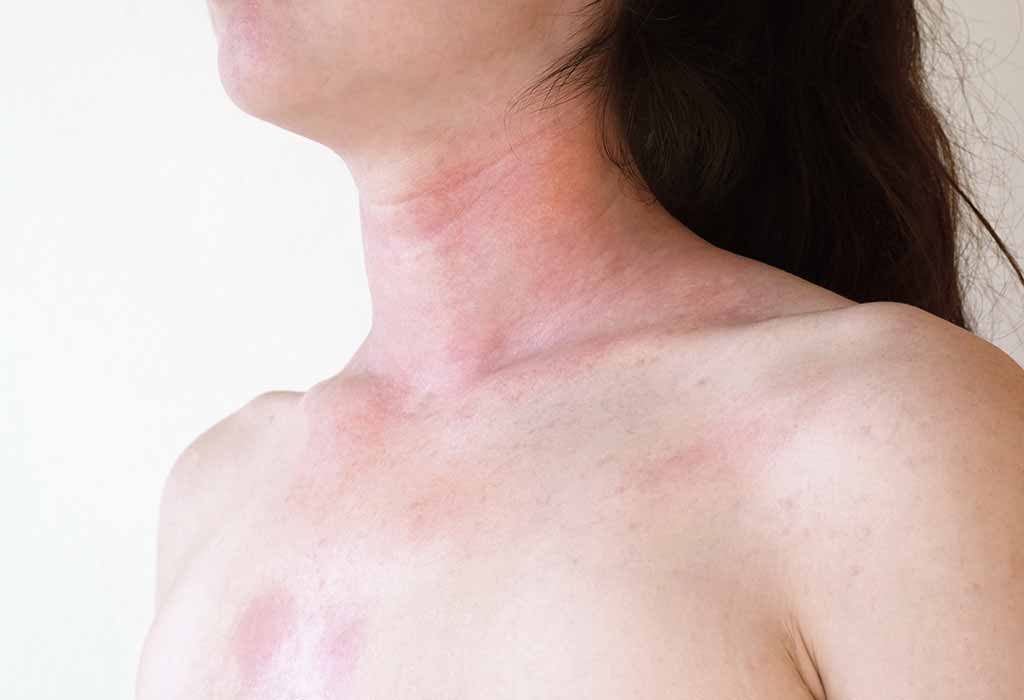What is Skin Allergy?
It is an abnormal reaction of the immune system. The substance (pollen, mold, etc.) is called allergen. The antigen responsible for the allergic reaction is called allergen. Our immune system is to protect us from any aggression or invasion by foreign substances. This loss of control on the part of the immune system triggers harmful over-reactions known as hypersensitivity.

Causes of Allergy
It can be caused by airborne allergies such as pollen, animal wandering or we can say dust mites.
- There may be an allergy to certain foods such as peanuts, tree nuts, wheat, soy, fish, eggs or milk.
- Insects such as bee stings or wasp stings may be a trigger factor.
Can be caused by some medications and injections.
Types of Allergy
Contact allergy
It appears on the body where ever it comes in contact with undesirable substances. Woolen clothing, synthetic polyester clothing may cause allergies. Metals such as nickel or topical drugs that contain pomades. At times this can also happen with cosmetic products or detergents.
Allergies to insect bites-
Insects that may be allergic to stings are mostly related to the order Hymenoptera: bees and wasps. After stinging a bee or wasp, you will see a small lump that itches, a painful red swelling that can spread and last for a few days.
Food allergy
There are some foods that can cause allergies and give dermal reactions like pruritus, uricaria, edema. The response may be immediate or delayed. People may be allergic to seafood, egg whites, milk, nuts (hazel nuts, pea nuts etc.).
Drug allergy-
They are the result of an immune response to a drug or its metabolite. Common culprits are penicillin and its derivatives, aspirin, anal gin, phenophilin, anti tetanus, anti diphtheria serum of non-human origin.
What are the symptoms of allergy?
An allergic reaction can range from mild to moderate, but in some severe cases the allergy may cause an allergic reaction and a severe body reaction called anaphylaxis.
Symptoms of mild allergy may include-
- Rash
- Wet eyes
- Overcrowding
- If allergies are mild, they do not spread to other parts of the body.
- Moderate symptoms may include-
- Itching
- Breathing problem
- Symptoms of allergy if moderate can spread to other parts of the body
Treatment of skin allergy
Allergen avoidance
You should avoid medication that first causes an allergic reaction. Control exposure to external allergens. Exposure should be controlled on animal dander, urine, and dry saliva which are common allergens that can spread throughout your home with indoor pets. Avoiding contact.
Desensitization- In fact, it would be more accurate to speak of hypo sensitization because this treatment is not actually condensate but it does make the patient less sensitive to allergen.
Medicinal treatment-
Antihistamines– Antihistamines are used to relieve or prevent allergic rhinitis (hay fever) and other allergic symptoms. Antihistamines inhibit the effects of histamine, a substance produced by the body during an allergic reaction. Antihistamines are available in tablet, capsule, liquid or injection form and by prescription.
Immunotherapy – In the immunotherapy series of injections, which extracts allergen is purified.
Emergency Epinephrine- For many allergic reactions, an epinephrine shot (Epine, JRWW injection) can ease symptoms until you receive emergency treatment.
Topical Immunomodulators –Corticosteroid Cream or Ointment – Sometimes your dermatologist will prescribe you a corticosteroid cream
